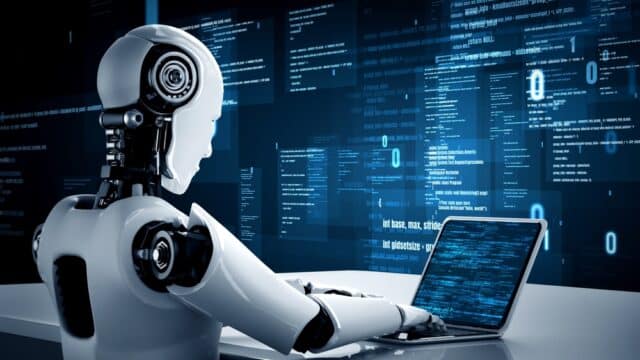Coding in the age of AI: Redefining software development

As AI marks its stamp on every industry, the software development landscape is experiencing a rapid transformation driven by the integration of automation into coding practices. With approximately $1 billion invested in AI-driven code solutions since early 2022, we’re seeing a shift that goes far beyond just automation. This transformation is redefining the entire software development lifecycle and testing assumptions about what it means to be a developer.
It is clear, as we embark at the beginning of a new era, that the future of coding does not reside in opposing change, but in adapting our approaches to education and practice in software development.
A new addition to developer toolkits
As AI plays an increasingly critical role in coding, developers are taking a step away from traditional tools by adding AI-powered assistants to their portfolio. This new technology isn’t just automating every-day tasks, it is fundamentally changing how software engineers can tackle problems with speed and efficiency.
However, integrating AI into development workflows introduces a new set of issues that must be tackled straight on, or risk introducing errors into software. For example, as a result of their heavy workloads and constant pressure to innovate, engineers could be tempted to take shortcuts and develop an overreliance on AI-generated code. As a result, there is an increased risk of vulnerabilities entering live applications, and over time this may cause engineers to lose essential skills. Although AI can be useful in speeding up routine tasks, it is not a substitute for human judgement, especially in complex scenarios.
The rise in popularity of AI in coding has spurred a discussion on the future of the “everyone should code” movement. While democratizing coding is crucial, the objective is not to produce an army of routine coders, but to train a generation of proficient developers capable of harnessing the potential of AI without compromising on integrity, quality and security.
The future of AI pair programmers
Today’s developers must be experienced not just in developing code, but also in collaborating with intelligent tools to review and modify AI-generated outputs. As the technology continues to advance, developers will need to recognize the role of “AI pair programmers”. They will need to shift their mindset to consider AI as a collaborative partner capable of developing sophisticated code.
But, of course, the technology is not perfect. Human developers play an integral role in giving context, evaluating code quality and integrating it into larger systems and existing workflows. For software developers, this transition will demand a greater level of critical thinking and cooperation than ever before, alongside technical expertise. For example, they must learn prompt engineering, have a sharp eye for code evaluation and be able to make responsible decisions when it comes to the ethical implications of using AI in software development.
Educating the coding talent of the future
Given the rapidly expanding nature of the coding landscape, approaches to education need to match these evolving standards. Initiatives like the National Coding Week in the UK play an important part in encouraging young talent to pursue further teaching in programming. However, educational efforts must extend as a global effort, to meet the realities of an AI-integrated development environment.
A truly future-proof coding course should focus on understanding AI behavior and constraints, using open-source libraries safely, and critically analyzing AI-generated solutions. Most crucially, it must introduce basic software engineering concepts that extend beyond specific languages or technologies. Establishing a curriculum that trains developers not just for current positions but prepares them for future challenges is critical. Without making these strides in coding education now, there will be greater risk of creating a generation of developers who are underqualified to handle the complexities of AI-assisted coding.
The future of AI-assisted coding
Rather than posing danger to human developers, the AI revolution in coding presents a chance to elevate the field of software engineering. By recognizing AI as a powerful tool and focusing on building critical evaluation skills, understanding AI behavior, and establishing a solid foundation in the software engineering basics, there will be a new wave of incredibly talented developers.
The future of coding is not about competing with AI but instead understanding how to properly interact with it. To achieve this, educational institutions, industry leaders, and developers must all support this progress. This will allow software engineers to develop more powerful solutions that will have a significant impact on shaping the digital future.
Image credit: BiancoBlue/depositphotos.com
Alois Reitbauer is Chief Technology Strategist at Dynatrace.
